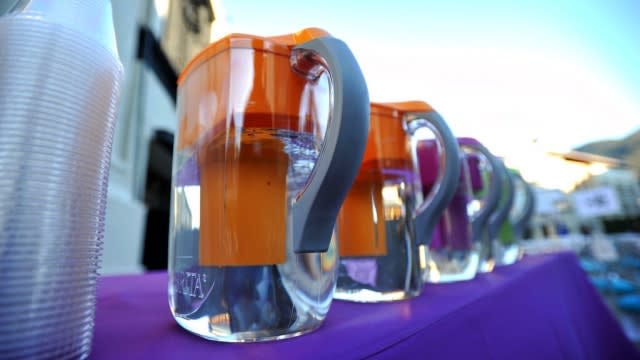Brita's Broken Promises: The Lawsuit That's Shaking the Water Filter Industry.
Consumer Seeks Jury Trial to Uncover the Truth Behind Brita's Contaminant Removal Claims.
Disclaimer: This article is as informational as it is snarky. For actual legal advice, consult someone who passed the bar exam, not the in-flight snack bar.
To have faith is to trust yourself to the water. When you swim you don't grab hold of the water, because if you do you will sink and drown. Instead you relax, and float.
In a world where clean water is a luxury for many, Brita has positioned itself as a savior, promising to filter out harmful contaminants from your tap water. But what if these promises are nothing more than a marketing gimmick? Nicholas Brown, a California resident, has filed a class-action lawsuit against Brita, claiming that the company falsely advertises the substances its filters supposedly eliminate[^1^][^2^].
Nicholas Brown filed the lawsuit on August 16, 2022, in the Los Angeles County Superior Court. He alleges that he bought a $15 Brita Everyday Water Pitcher earlier this year because the label claimed it "reduces 30 contaminants, including lead, benzene, mercury, cadmium, asbestos, and more". However, Brown argues that these claims are false and misleading. The product does not remove or reduce common contaminants hazardous to health, including what the lawsuit terms as "Common Hazardous Contaminants," to below lab detectable limits.
The lawsuit specifically calls out the failure of Brita filters to remove contaminants like arsenic, chromium 6, nitrate and nitrites, perfluorooctanoic acid, perfluorooctane sulfonate, radium, total trihalomethanes, and uranium. These chemicals are better known as PFAS, or "forever chemicals," because they don't break down in the environment or in our bodies[^5^]. A government study in July found that nearly half of the tap water in the U.S. is likely contaminated with these "forever chemicals."
Brown is not just seeking a jury trial to get back the money he believes he and other Brita customers paid for these products. He's also asking the court to force Brita to alter its business practices, either by changing its packaging or improving its filters to match their advertised claims.
Brita, on the other hand, is gearing up for a fight. The company stated that they "[look] forward to defending ourselves vigorously" against Brown's allegations.
This lawsuit could be a PR nightmare for Brita. If the allegations are proven true, it could severely damage the brand's credibility and customer trust. It's crucial for companies to ensure that their advertising claims are not just compelling but also accurate. Misleading customers, especially when it comes to health and safety, is not just unethical—it's dangerous.
The Brita lawsuit serves as a cautionary tale for consumers and companies alike. It's a wake-up call to scrutinize the claims that brands make and the promises they offer. After all, when it comes to our health, there's no room for false advertising.
Disclaimer
This article is intended for informational purposes and should not be considered legal advice. Always consult with a legal expert for matters concerning lawsuits and settlements.
CFPB $2.7 Billion Judgement against Lexington Law and CreditRepair.com
Disclaimer: This article is as informational as it is snarky. For actual legal advice, consult someone who passed the bar exam, not the in-flight snack bar. Believe in yourself! Have faith in your abilities! Without a humble but reasonable confidence in your own powers you cannot be successful or happy.





